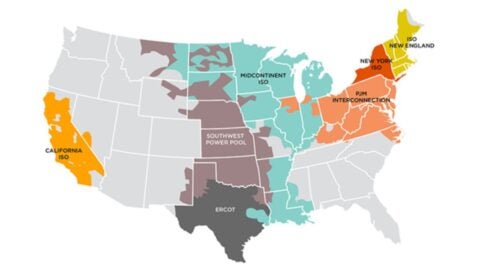Check out this week’s Expert Q &A on the Gulf oil spill
As part of EDF’s mission to keep the public informed of the largest challenges facing the environment, we have put together a series called Expert Q&A. The goal is to get simple answers to pressing questions from the people who know the issues inside and out, our EDF staff experts.
This week the expert Q & A focuses on the gulf oil spill and how the disaster will affect our chances of passing the recently released climate bill, the American Power Act.
The expert in question and being questioned is Steve Cochran, the director of our National Climate Campaign.
In answer to the question of whether a spill in the Gulf was inevitable, Steve responds:
“We have a saying where I grew up: If you continue to load the gun, God will provide the drunk or the fool who is going to pull the trigger. There are over 3,000 operating wells in Gulf. I know firsthand how great the pressure is to produce at all costs, even at the expense of cutting corners on safety. Sad to say, it was only a matter of time before it caught up with us.”
When asked about how to prevent further disasters, Steve explains that:
“It is going to happen again even if we never drilled another new well.
But we can do several things to protect ourselves. We can require that the emergency response infrastructure be in place – I’m talking warehouses filled with booms and equipment – so when there is another spill we can respond more quickly. It’s incredible to me that this doesn’t exist today.
Second, we can make it more expensive for oil companies to cut back on safety. We have to make sure that oil companies are held accountable, pay for the protections and pay for the clean up and the carbon pollution associated with these products.
Making the polluter pay will do more than anything else we can do to reduce the risk of exposure to these pollutants. We can mandate it, we should, we can require it, and we should. But, making them pay for it, making sure they know the dollars will come out of their pocket if they make a mistake, that’s the key.”
Steve also shares some sage words on how passing a smart climate bill focused on public safety is essential to helping us transition into a clean energy economy.
“There are two pieces to it. One, I don’t think we should have any discussion about new drilling until we have the safeguards and protections in place that give us more confidence that we won’t face what we are facing right now. Without that I don’t know how to have that conversation. It’s hard to turn on the television every day and say we know how to do this well enough. So for the short-term view we have to focus on the safety and precautions and see if we can put a system in place that gives people some confidence.
The second piece of course is the critical need to cap our carbon pollution, which will create powerful economic incentives to transition to a clean energy economy.”
Read the full Q & A here.












